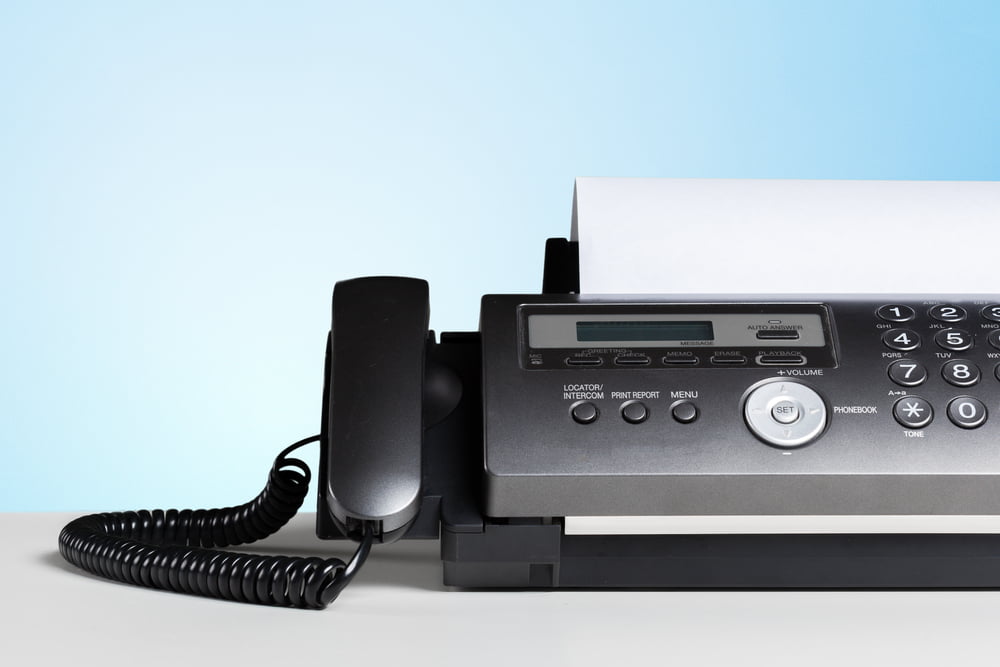Who Still Uses Fax Machines?
The majority of fax machines users fall into several industries:
- Health care. In the medical industry, the transferring of patient records is crucial to providing the care they need. However, most of these institutions and hospitals each use different databases and systems that don’t communicate with each other. This poses a problem when a patient is transferred to another facility or switches healthcare providers. To get around this issue, medical providers tend to rely on faxing the information between offices. They also have to comply with HIPAA privacy laws and view faxing confidential medical information as safer than emailing it and having a digital copy of it in the cloud.
- Law Enforcement. Fax machines are still widely used across law enforcement agencies. Prisons receive bail payments over fax, government agencies take reporter requests and inquiries over fax, and sensitive or confidential documents are sent between agencies as it is much more difficult to intercept a fax than it is to intercept an email, even if the email is secured and encrypted.
- Law Firms. Documents that are sent by fax are considered legally binding documents. In an industry that is highly dependent on establishing paper trails and sending confidential documents to each other, fax machines are still widely used to accomplish this purpose. It reduces the wait time of having to directly mail their documents or depend on a courier to deliver them and speeds up the overall process. As an added benefit, fax confirmation pages eliminates any doubt that the documents have been received.
The key factor across these industries is that the move from fax machines to email or another digital alternative would require a massive overhaul of their processes. It would be costly to do a widespread replacement of their machines, it would require an extreme level of coordination to introduce the change, and could open them up to legal issues in industries that require faxes to be used for the sending and receiving of secure documents.
The Emergence of Fax Servers
However, just like any other branch of technology, upgrades have been occurring to the way fax machines function and are used. The biggest change has been the introduction of fax servers. These machines treat faxes as emails or PDFs and allow them to be sent over phone lines or via the internet. The benefit of this is that it doesn’t tie up a phone line like a regular fax machine does and it allows multiple users to use the fax server at the same time. The documents are simply queued and sent in the order they were received. It also allows users to send faxes from their computer, as well as saves on office supply costs as it doesn’t require the printing of documents.
While many fax machine users are wary of using the internet to send faxes, fax servers have proven to be a secure way of transmitting data. In addition, it eliminates the chance of documents being picked up by someone other than the intended recipient.
Streamline Your Processes
If you are a business that utilizes faxes on a daily basis, it may be time to look into upgrading your machine. Whether that means upgrading to a newer fax machine that offers faster transmission of documents, or taking things to the next level with a fax server, The Digi Group can help you find the perfect device to streamline your office’s communication and productivity. We are a certified partner with Xerox, HP, Samsung, Brother, and more, and offer a variety of fax machines and servers for purchase or lease. Call us at 405-603-3545 or send us a message online to schedule a free consultation with us today.


Recent Comments